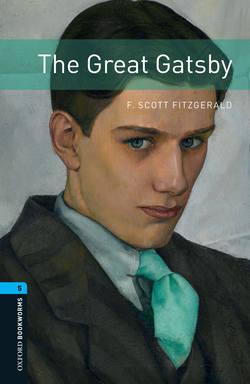Читать книгу The Great Gatsby - Francis Scott Fitzgerald - Страница 6
На сайте Литреса книга снята с продажи.
CHAPTER 1
DINNER WITH THE BUCHANANS
ОглавлениеIn my younger and more vulnerable years my father gave me some advice that I’ve been turning over in my mind ever since.
‘Whenever you feel like judging anyone,’ he told me, ‘just remember that all the people in this world haven’t had the advantages that you’ve had.’
He didn’t say any more, but I understood that he meant a great deal more than that. As a result, I usually wait some time before making any judgements. This habit has opened up many strange characters to me, as people are often eager to tell me about themselves. When I was at college, I was unjustly accused of being a politician, because I knew the secret sadnesses of wild, unknown men. I hardly ever wanted to hear these secrets – in fact, I have often pretended to be asleep or busy when I realized by some unmistakable sign that a young man was preparing to tell me his deepest, most personal feelings.
Holding back judgement is a matter of hope. There is always the possibility that someone, in time, will turn out well. What my father was suggesting was that we are all born with a different sense of right and wrong. And if I forget that, then I am a little afraid of missing something.
However, I have to confess that I haven’t always taken my father’s advice. When I came back from the East last autumn, I felt I wanted the whole world to be in moral uniform, all living a highly moral life for ever. I wanted no more wildness, no more secrets of the human heart. Only Gatsby, the man who gives his name to this book, was an exception – Gatsby, who represented everything for which I would normally have only the deepest scorn. There was something truly wonderful about him, a heightened sensitivity to the promises of life – he was like one of those complicated machines that show the presence of an earthquake ten thousand miles away. He had an extraordinary gift for hope, a romantic readiness which I have never found in any other person and which it is not likely I shall ever find again. No – Gatsby turned out all right at the end. It was what lay in wait for Gatsby, what foul dust followed on the heels of his dreams that, for a while, ended my interest in the failed sorrows and short-lived joys of men.
My family, the Carraways, have been successful, fairly wealthy people in this Middle Western city for many years. My grandfather’s brother came here in 1851 and started the business that my father carries on today. I finished my studies at Yale University in 1915, and a little later I took part in the Great War. I enjoyed this excursion so much that I came back from Europe feeling restless. Instead of being the warm center of the world, the Middle West now seemed like the torn edge of it. So I decided to go East, to New York, and learn the bond business. Everybody I knew was in the bond business, so I supposed it could support one more single man. All my aunts and uncles talked it over and finally said, ‘Why – ye-es,’ with very serious, hesitant faces. Father agreed to pay me an income for a year, and I came East, for ever, I thought, in the spring of 1922.
The sensible thing was to find rooms in the city, but it was a warm season and I had just left a country of wide lawns and friendly trees. So when a young man at the office suggested we should rent a house together just outside the city, it sounded like a great idea. He found the house, a small weather-beaten place at eighty dollars a month, but at the last minute the company ordered him to move to Washington, and I went out to the country alone. I had a dog – at least I had him for a few days until he ran away – and an old car, and a woman from Finland, who made my bed and cooked breakfast and whispered darkly to herself in Finnish in the kitchen.
